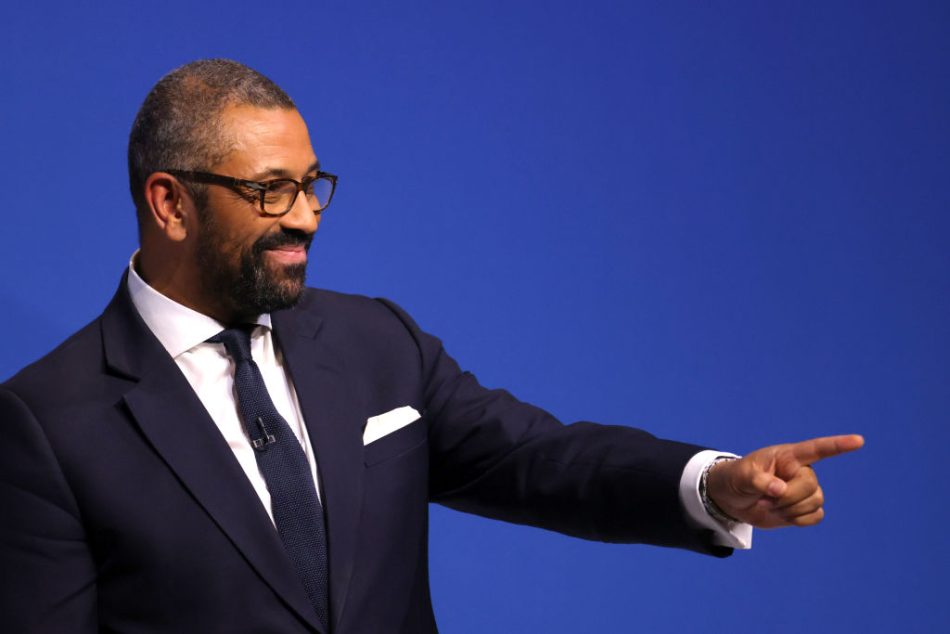There is a revolutionary air on the right at present. Whether it is Kemi Badenoch’s call to ‘rewire the state’ or Nigel Farage’s attacks on ‘broken Britain’, few have much good to say about our current political set-up. Step forward James Cleverly to offer balm to all that inflammation. At a speech this morning at the IPPR think tank, the former foreign secretary gave his thoughts on the rise of Reform UK and how government must change to function more effectively.
Cleverly began by contrasting two Reform-run councils: Warwickshire and Leicestershire. Both wanted to change the rules to allow only national flags to be flown from council buildings. The former quickly became embroiled in a vicious war of words with its chief executive, prompting threats, warnings and Zia Yusuf decrying a ‘coup’. The latter simply held a meeting of their executive and quietly changed the rules. ‘Guess which Reform HQ was proud of?’ asked Cleverly. ‘The one who had the row – or the one who got the result.’
Cleverly’s boosterism won fans in the room
His point was: ‘delivery requires discipline’. In a twenty-minute speech, the ex-home secretary criticised those elements within Reform who think that ‘fighting the system is more important than getting a result’. Cleverly’s argument was that – contrary to popular belief – conservatives can achieve success in the current political system. He spoke of the importance of working with civil servants and reeled off his own record in office: migration halved, aid waste cut and relations reset.
The system, though, is not perfect. Cleverly pointed out how, as Foreign Secretary, he would find officials working in teams dedicated to ‘ministers’ priorities’. When he enquired as to which priorities, he discovered that they were the ones of predecessors who had left sometime earlier. Redirecting resources and ensuring Whitehall is both ‘leaner and more effective’: Cleverly’s points here are ones with which few conservatives would disagree.
He attacked the quangocracy – ‘If power lies where accountability does not, then it has to be changed’ – and noted his own record as a longtime Brexiteer, a vote ‘I would take again in a heartbeat’. There were some nice Cleverly touches too. He evidently has little time for certain defectors to Reform, the ones who only realised that they were not Tories after they were ‘booted out of office’. His boosterism won fans in the room, including his final remarks that evoked the Roman spirit after the Battle of Cannae: ‘Rome is not defeated until Rome chooses to be defeated.’
But others will be disappointed by Cleverly’s lack of radicalism. At one point, discussing reform of the state, he used the analogy of a Formula 1 racing car, pulling in to a pit stop mid-race. He argued that no sensible crew team would tear apart the whole car mid-race: ‘You’ve got work with what you’ve got and make incremental improvements.’ The obvious riposte to that is that, far from being an F1 race car, much of Whitehall today appears to more closely resemble an Austin Allegro.
Given his stated preference for ‘doing stuff’, what does Cleverly now plan to do next? When asked for his future intentions – be that a frontbench return or a bid for London Mayor – the Braintree MP declined to be drawn. He preferred to point to the frustrations of opposition and suggested he is ‘taking time to think’. Making the case for incrementalism could well keep him fully occupied, given the strength of feeling among many of his own colleagues.







Comments